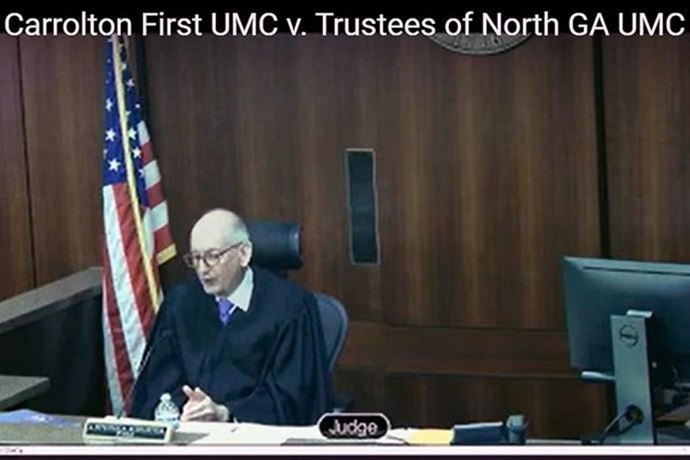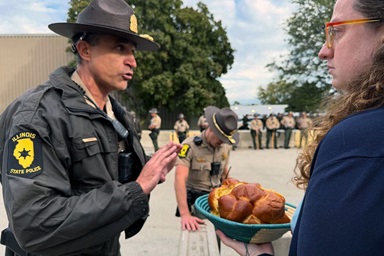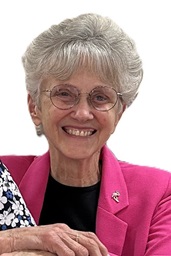
Key Points:
- A judge has opened the door for more than 180 North Georgia churches to proceed with The United Methodist Church’s disaffiliation process.
- Meanwhile, the Rio Texas Conference has filed suit against churches seeking to circumvent the denomination’s disaffiliation requirements.
- Both cases come after judges in other states have dismissed lawsuits from churches seeking to exit with property without following denominational procedures.
A Georgia county judge ruled from the bench that 185 churches in the North Georgia Conference can move forward with The United Methodist Church’s disaffiliation process.
Meanwhile, leaders of the Rio Texas Conference filed a lawsuit against 40 churches that are trying to sidestep that process.
At issue in both cases are the requirements of Paragraph 2553 in The United Methodist Church’s Book of Discipline.
That provision — passed in 2019 after intensifying denominational strife over LGBTQ inclusion — offers U.S. congregations “a limited right” to exit the denomination with property if they meet certain financial and procedural obligations.
At this point, more than 3,300 congregations have cleared the necessary hurdles to withdraw under Paragraph 2553. That’s about 11% of U.S. churches since the provision took effect. The church law will expire at the end of the year.
The suit filed jointly by 185 Georgia churches came after North Georgia Conference leaders paused the disaffiliation process, saying widespread misinformation raised their doubts about the validity of church disaffiliation votes. Previously, the conference had approved 71 church disaffiliations.
But, with Paragraph 2553 about to sunset, Cobb County Superior Court Judge J. Stephen Schuster said the conference must let the plaintiff churches take the required steps in the church-exit process — starting with a congregational vote.
“I believe that the North Georgia Conference has an affirmative duty to assist them in holding a vote if a church makes a call for a church conference to have that vote,” he said at the end of a daylong hearing May 16. The hearing was streamed on YouTube.
He added that the conference “has an equal right to make sure it’s done properly within the contours of the Book of Discipline.”
Under church law, a disaffiliating congregation must vote by at least a two-thirds margin for disaffiliation, pay exit fees required by its conference board of trustees and receive the approval of its annual conference — a regional body consisting of voters from multiple churches.
Schuster acknowledged that it will ultimately be up to the North Georgia Annual Conference voters whether to approve the church disaffiliations.
“Whether the conference gives them an up or down vote is not for the court to decide,” he said.
Schuster also said he saw no signs of bad intent on either side in the case. He welcomed attorneys for both the plaintiff churches and the North Georgia Conference to file additional motions before he renders his final ruling.
In a statement, the North Georgia Conference said that while details of the order are yet to come, conference leaders are exploring possible appeal.
“Leaders of the conference remain committed to handling this matter in a fair, transparent, uniform and good faith manner,” the statement said.
“Most importantly, our focus continues to be on the mission of The United Methodist Church to make disciples of Jesus Christ for the transformation of the world. That is unchanging. We will update the North Georgia Conference in the days to come.”
Earlier this month, the Columbia County Court granted motions to allow two other congregations — Mann-Mize and Trinity on the Hill United Methodist churches — to hold a vote on disaffiliations. The conference said it would appeal these decisions.
North Georgia plans to hold its next annual conference on June 1-3. Schuster said he would not alter that schedule. If the disaffiliations move forward, the conference could join others across the country in holding a special session to take up disaffiliation resolutions.
More than a thousand miles west, the Rio Texas Conference is dealing with a very different situation.
A couple of weeks ago, the conference approved the disaffiliation of 33 churches.
But now, the Rio Texas Conference board of trustees has filed a suit in Bexar County against 40 churches that have hired legal counsel to try to circumvent the exit process others have already followed.
Conference leaders stressed that they turned to litigation only as a last resort because the churches refused to engage in the approved separation process.
“It has never been the intent of the conference to profit from disaffiliations,” Kevin Reed, the trustees president, said in a video about the trustees’ decision. “Quite the opposite.”
But he added that among the church law’s requirements is that departing churches must pay a fair share of their clergy pension liability as well as a share of church giving to help ensure the financial health of the congregations that remain.
The conference has a fiduciary duty to maintain those requirements, and other disaffiliating churches are complying, conference leaders said.
“We remain prayerful that these churches will return to the table and meet their moral obligations to the conference and its member churches,” said Bishop Robert Schnase, who leads the Rio Texas and New Mexico conferences, in a statement.
Subscribe to our
e-newsletter
“This disagreement is with a minority of churches. There are far more United Methodists staying who are invested in The United Methodist Church moving forward.”
So far, U.S. civil courts have largely upheld the denomination’s property and disaffiliation policies.
Going back to the 18th century, The United Methodist Church and its predecessors have maintained a trust clause in the Book of Discipline that states that all church property is held in trust for the entire denomination. John Wesley, Methodism’s founder, established the forerunner to the Discipline’s current trust clause.
In the past two months, a North Carolina judge and a Florida judge each dismissed cases brought by multiple churches seeking to leave the denomination with property without following those policies. Both lawsuits also sought to invalidate The United Methodist Church’s longtime trust clause.
The National Center for Life and Liberty, a non-Methodist nonprofit, represented churches in both of those cases and has plans to appeal. The center also represented the 185 churches in the North Georgia case and is involved in other ongoing legal action against the Baltimore-Washington and Eastern Pennsylvania conferences.
David Gibbs III, the center’s founder, said during opening arguments at the North Georgia hearing that the center represents some 2,000 United Methodist churches across the country that want to leave the denomination.
The center has been working on legal strategy with the Wesleyan Covenant Association, the theologically conservative advocacy group that organized the breakaway Global Methodist Church and is recruiting for the new denomination. However, not all departing churches plan to join the Global Methodist Church.
Schuster, the Georgia judge, said that he felt the grief of the situation. While not United Methodist, he noted the strong presence of the denomination's churches both in his immediate neighborhood and in rural communities going back generations.
“There is absolutely no question that The United Methodist Church … has been a backbone of America since the 1700s,” he said before announcing his ruling.
“And it is painful to watch this church go through what at best can be described as a schism.”
Hahn is assistant news editor for UM News. Contact her at (615) 742-5470 or newsdesk@umnews.org.To read more United Methodist news, subscribe to the free Daily or Friday Digests.



